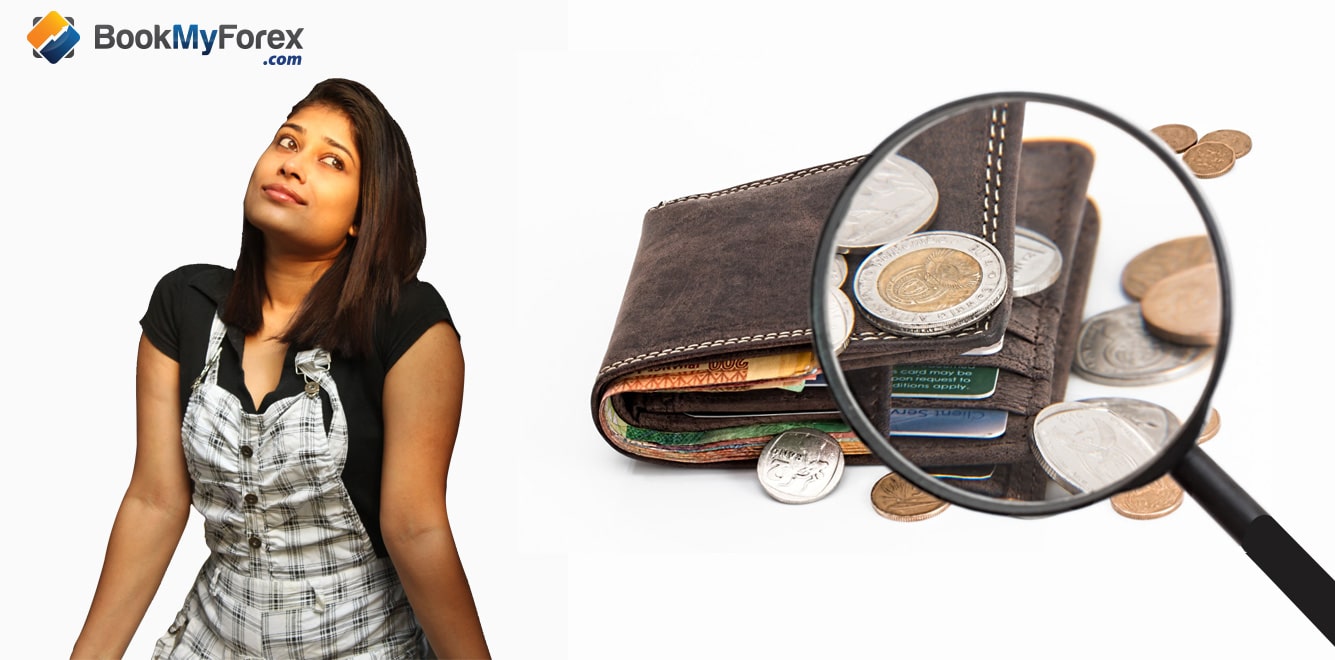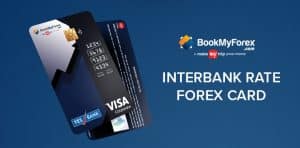Related: Forex Card Vs Cash Vs Debit Card Vs Wire Transfer
Forex Card or Cash – What is the cheaper option? Read on to find out and you should be able to decide what to choose better for your next trip abroad.
Today, however, we will talk about Double Conversions. Most people are unaware of this term so let us explain what a Double Conversion is and how it works. When you load your card with the currency of a particular country but end up using it in a different country, two conversions occur. You convert INR to say USD and load it onto your card, this is the first conversion. Now you purchase something in Canada and pay in CAD, the conversion is from USD to CAD, this is the second conversion. INR to USD and then USD to CAD. This is called a Double Conversion. A lot of people think that it will be cheaper to take the Forex Card and load it with USD (or any other currency) but withdraw CAD or any other currencies from an ATM using this card. It is not. Let us take an example
When you pay by Forex Card:
USD Forex Card Rate: ₹ 64.96
CAD Cash Rate: ₹ 52.15
So if you purchase something worth 1000 USD in Canada, you pay ₹64960 plus the cross currency conversion (USD to CAD) charge (around 3.5%) of ₹2273, so the total you pay is ₹67233.
When You Pay by Cash:
CAD Forex Card Rate: ₹51.77
The total amount of CAD taken out of your card is (67233/51.77) 1298. And if you buy anything worth 1298 CAD in cash directly, it will be (1298 x CAD Cash Rate of ₹52.15) ₹67690.
When you compare the total amount paid in cash from the total amount paid by forex card, the difference is 460 or around 9 CAD.
In a nutshell, if you purchase Canadian Dollar in cash directly, you will end up spending an extra amount. Thus it is very important that you choose the right option to pay.
Below we have explained the features and benefits of using Forex Card and Cash when abroad.
Forex Card
Best for:
— You can buy everything you need when abroad using a Forex Card
Pros:
—Most recommended and safest form of carrying currency nowadays. Prepaid travel cards come with pin protection, and have configurable spending limits and are fully replaceable in case you lose them or someone steals it.
—Usually available at better rates than currency notes (cash) and traveller’s cheques.
—Better than credit/ debit cards – With Prepaid Travel cards you avoid paying the 2% to 5% transaction fee (Visa/ MasterCard, Issuing bank fees) that is charged when you use your international debit/ credit card. Also unlike credit, debit cards you aren’t susceptible to variable rates as forex loaded on your prepaid card is loaded at a fixed rate.
—Convenient – can be reloaded anytime. 24×7 customer care service.
—Always available – unlike foreign cash and traveler’s cheques, which are subject to availability, prepaid cards can be loaded with any amount of foreign currency at any time
—Almst all foreign establishments (hotels, stores etc.) accept Travel Cards (VISA or MasterCard) without any charge.
—Ability to withdraw cash from all Visa/Mastercard ATMs abroad
—Comes with a free insurance cover
Cons:
—None. Forex cards are the best way to carry foreign currency when traveling overseas
What you need to know:
—Do a research first about the features and benefits of different forex card providers. Some banks and exchangers charge hidden fees.
—Always buy your forex card well in advance. It takes up to 24-72 working hours for a card load and activation.
Cash
Best for:
—For the first few hours of your trip until you find an ATM.
Pros:
—Always carry some cash in hand before you leave your home country for your immediate expenses like a cab fare or a meal at the airport.
Cons:
—It is never safe to carry large amounts of cash because of the obvious reasons like robbery or kidnapping for money etc.
—Exchanging Indian rupee to cash would not get you the best exchange rate. You may also have to pay fees or commissions.
What You Need to Know:
—Always visit your local bank or research online for the best currency rates for cash. Start with your local bank as they may waive off charges and fees because you’re an account holder. They value this relationship.
—Take 10-20% of your total forex in cash. Ask for small denominations.
Now you know what Double Conversions are and how expensive it is to take all of your forex in cash than a Forex Card.





























Leave a Reply